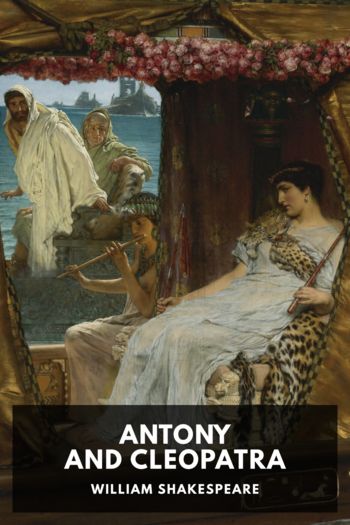Commentaries on the Gallic War Julius Caesar (best books to read in life txt) 📖

- Author: Julius Caesar
Book online «Commentaries on the Gallic War Julius Caesar (best books to read in life txt) 📖». Author Julius Caesar
Being on the same day informed by his scouts that the enemy had encamped at the foot of a mountain eight miles from his own camp, he sent persons to ascertain what the nature of the mountain was, and of what kind the ascent on every side. Word was brought back that it was easy. During the third watch he orders Titus Labienus, his lieutenant with praetorian powers, to ascend to the highest ridge of the mountain with two legions, and with those as guides who had examined the road; he explains what his plan is. He himself during the fourth watch, hastens to them by the same route by which the enemy had gone, and sends on all the cavalry before him. Publius Considius, who was reputed to be very experienced in military affairs, and had been in the army of Lucius Sulla, and afterwards in that of Marcus Crassus, is sent forward with the scouts.
At daybreak, when the summit of the mountain was in the possession of Titus Labienus, and he himself was not further off than a mile and half from the enemy’s camp, nor, as he afterwards ascertained from the captives, had either his arrival or that of Labienus been discovered; Considius, with his horse at full gallop, comes up to him—says that the mountain which he [Caesar] wished should be seized by Labienus, is in possession of the enemy; that he has discovered this by the Gallic arms and ensigns. Caesar leads off his forces to the next hill and draws them up in battle-order. Labienus, as he had been ordered by Caesar not to come to an engagement unless [Caesar’s] own forces were seen near the enemy’s camp, that the attack upon the enemy might be made on every side at the same time, was, after having taken possession of the mountain, waiting for our men, and refraining from battle. When, at length, the day was far advanced, Caesar learned through spies that the mountain was in possession of his own men, and that the Helvetii had moved their camp, and that Considius, struck with fear, had reported to him, as seen, that which he had not seen. On that day he follows the enemy at his usual distance, and pitches his camp three miles from theirs.
The next day (as there remained in all only two days’ space to the time when he must serve out the corn to his army, and as he was not more than eighteen miles from Bibracte, by far the largest and best-stored town of the Aedui) he thought that he ought to provide for a supply of corn; and diverted his march from the Helvetii, and advanced rapidly to Bibracte. This circumstance is reported to the enemy by some deserters from Lucius Aemilius, a captain of the Gallic horse. The Helvetii, either because they thought that the Romans, struck with terror, were retreating from them, the more so, as the day before, though they had seized on the higher grounds, they had not joined battle; or because they flattered themselves that they might be cut off from the provisions, altering their plan and changing their route, began to pursue and to annoy our men in the rear.
Caesar, when he observes this, draws off his forces to the next hill, and sent the cavalry to sustain the attack of the enemy. He himself, meanwhile, drew up on the middle of the hill a triple line of his four veteran legions in such a manner that he placed above him on the very summit the two legions which he had lately levied in Hither Gaul, and all the auxiliaries; and he ordered that the whole mountain should be covered with men, and that meanwhile the baggage should be brought together into one place, and the position be protected by those who were posted in the upper line. The Helvetii, having followed with all their wagons, collected their baggage into one place: they themselves, after having repulsed our cavalry and formed a phalanx, advanced up to our front line in very close order.
Caesar, having removed out of sight first his own horse, then those of all, that he might make the danger of all equal, and do away with the hope of flight, after encouraging his men, joined battle. His soldiers, hurling their javelins from the higher ground, easily broke the enemy’s phalanx. That being dispersed, they made a charge on them with drawn swords. It was a great hindrance to the Gauls in fighting, that, when several of their bucklers had been by one stroke of the (Roman) javelins pierced through and pinned fast together, as the point of the iron had bent itself, they could neither pluck it out, nor, with their left hand entangled, fight with sufficient ease; so that many, after having long tossed their arm about, chose rather to cast away the buckler from their hand, and to fight with their person unprotected. At length, worn out with wounds, they began to give way, and as there was in the neighbourhood a mountain about a mile off, to betake themselves thither. When the mountain had been gained, and our men were advancing up, the Boii and Tulingi, who with about 15,000 men closed the enemy’s line of march and served as a guard to their rear, having assailed our men on the exposed flank as they advanced [prepared] to surround them; upon seeing which, the Helvetii, who had betaken themselves to the mountain, began to press on again and renew the battle. The Romans having faced about, advanced to the attack in two divisions; the first and second line to withstand those





Comments (0)